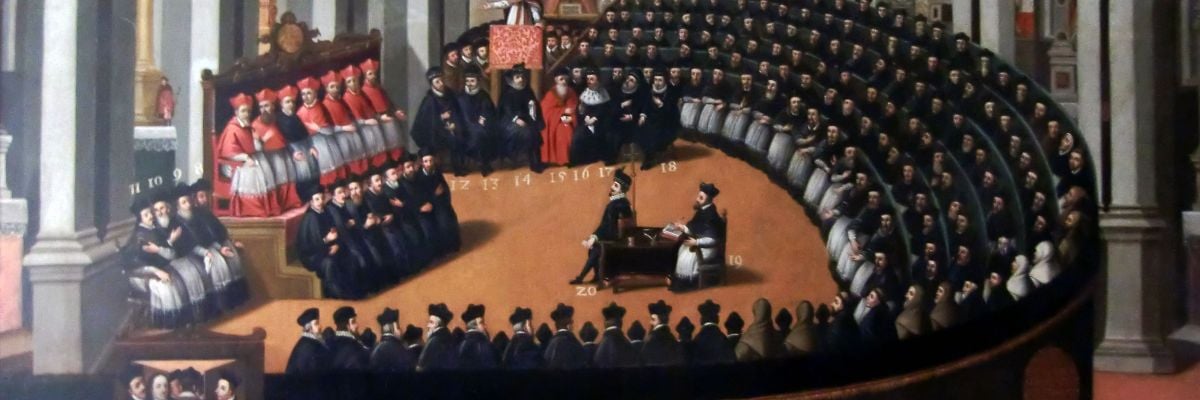
DAY 294
CHALLENGE
“Why should I listen to what a Church council says?”
DEFENSE
“Because Scripture supports the role of Church councils.”
Jesus did not reserve teaching authority to himself, but assigned it to the leaders he put in charge of his Church (see Day 281). He thus created a Magisterium (Latin, “teaching authority”) within his Church.
Usually this Magisterium is exercised personally—by individuals (originally by the apostles and later by the bishops who succeeded them). However, it is also God’s will that, when the occasion calls for it, the Magisterium be exercised in a collective fashion.
We see an example of this in Scripture when a dispute arises in the Christian community in Antioch over whether Gentiles need to be circumcised in order to be saved (Acts 15:1).
Paul was involved in this dispute (Acts 15:2), and, as an apostle, was capable of teaching authoritatively on this point. Nevertheless, it was God’s will that the matter be dealt with in a collective fashion. Thus the Antiochian church sent a delegation, including Paul, to the church in Jerusalem. Paul states that, on this occasion, “I went up by revelation” (Gal. 2:2), suggesting that the impetus for the consultation came directly from the Holy Spirit.
When the delegation arrived, the apostles and elders held a council to consider the question (Acts 15:6–21). After reviewing the matter, including what God had already revealed through Peter’s ministry (Acts 10–11), it was concluded that Gentiles do not need to be circumcized to be saved, and a pastoral plan was devised for how Jews and Gentiles could live harmoniously in the Church.
They then sent a delegation back to Antioch along with a letter announcing the results of the council (Acts 15:22–31). Particularly noteworthy is this phrase from the letter: “It has seemed good to the Holy Spirit and to us to lay upon you no greater burden than these necessary things” (v. 28).
The fathers of the council thus saw the Holy Spirit as working through their deliberations and validating the results of the council, though Luke gives no indication that any revelations were received during it.
Since Scripture reveals it is God’s will for the Magisterium of the Church to sometimes be exercised this way, the Jerusalem council became the model for all later Church councils.



